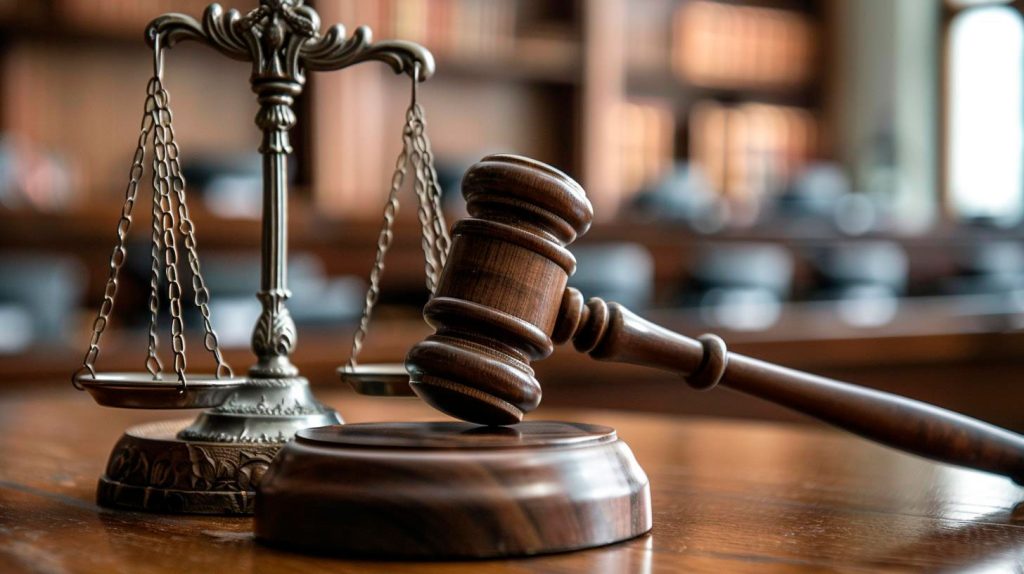
Potential Legal Consequences of Illegal Credit Repair Practices
Understanding Credit Repair
Credit repair is the process of improving a person’s creditworthiness by removing inaccurate or outdated information from their credit report. This can include things like late payments, collections, or bankruptcies. Legitimate credit repair companies work with credit bureaus and creditors to dispute inaccurate information on behalf of their clients. However, some companies resort to illegal tactics to try to quickly boost a person’s credit score.
Illegal Credit Repair Practices
One of the most common illegal credit repair practices is the use of stolen identities or fake identities to create new credit profiles for clients. This is known as “file segregation” and is a violation of federal law. Companies that engage in file segregation may be charged with fraud and face severe penalties, including fines and imprisonment.
Another illegal practice is the use of misleading advertising to lure in clients. Some companies promise to remove negative information from a person’s credit report, even if it is accurate. This is a violation of the Credit Repair Organizations Act (CROA), which prohibits credit repair companies from making false claims about their services.
Potential Legal Consequences
Individuals who engage in illegal credit repair practices may face civil lawsuits from clients who have been harmed by their actions. These lawsuits can result in financial damages being awarded to the injured parties. Additionally, credit repair companies that are found to be engaging in illegal practices may face legal action from state and federal authorities.
In some cases, companies that engage in illegal credit repair practices may be prosecuted criminally. This can result in fines, probation, or even jail time for the individuals involved. It is important for credit repair companies to operate within the bounds of the law to avoid these serious legal consequences.
Protecting Consumers
To protect consumers from illegal credit repair practices, the Federal Trade Commission (FTC) has specific guidelines in place for credit repair companies to follow. These guidelines include requirements for companies to provide accurate information to clients, obtain written consent before performing any services, and not charge fees before services are provided.
Consumers should be cautious when choosing a credit repair company and do their research to ensure that the company is reputable and operates legally. By working with a legitimate credit repair company, individuals can improve their credit score without risking legal consequences.
Illegal credit repair practices can have serious legal consequences for both consumers and credit repair companies. It is important for individuals to be aware of the risks associated with these practices and to work with reputable companies that operate within the bounds of the law. By following the guidelines set forth by the FTC and being cautious when choosing a credit repair company, consumers can protect themselves from potential legal issues while working towards improving their credit.
Remember, a good credit score is an important financial asset that can open up opportunities for loans, mortgages, and other financial products. It is worth taking the time to improve your credit score through legal and ethical means to avoid any legal troubles down the road.
Risks and Limitations of DIY Credit Repair
In this article, we will delve into the potential pitfalls of DIY credit repair and why seeking professional legal assistance may be the best course of action.
The Importance of Credit Repair
Credit scores play a crucial role in a person’s financial well-being. A good credit score can make it easier to secure loans, obtain favorable interest rates, and qualify for housing and employment opportunities. Conversely, a poor credit score can lead to higher interest rates, difficulty obtaining credit, and even denial of certain services.
Given the importance of credit scores, it is understandable why individuals may feel the need to improve their credit. However, the process of repairing credit can be complex and challenging, especially for those who are unfamiliar with the laws and regulations governing credit reporting.
Risks of DIY Credit Repair
One of the main risks of DIY credit repair is the potential for errors and inaccuracies. Without a thorough understanding of credit laws and regulations, individuals may inadvertently make mistakes that could further damage their credit. Additionally, DIY credit repair may take a significant amount of time and effort, with no guarantee of success.
Another risk of DIY credit repair is the possibility of falling victim to credit repair scams. There are many companies and individuals that promise to repair credit quickly and easily, but often engage in fraudulent practices that can land consumers in legal trouble.
Limitations of DIY Credit Repair
DIY credit repair also has its limitations in terms of effectiveness. While individuals may be able to dispute certain errors on their credit report, they may not have the knowledge or resources to address more complex issues. Credit repair professionals, on the other hand, have the expertise and experience necessary to navigate the credit repair process effectively.
Furthermore, DIY credit repair may not address the underlying issues that led to poor credit in the first place. Without addressing the root causes of credit problems, individuals may find themselves in a cycle of credit repair that does not lead to long-term financial stability.
Benefits of Professional Legal Assistance
Seeking professional legal assistance for credit repair can offer a number of benefits. Legal professionals have a comprehensive understanding of credit laws and regulations, enabling them to identify errors and inaccuracies on credit reports more effectively. Additionally, legal professionals have the resources and expertise to navigate the credit repair process efficiently and successfully.
Legal assistance can also help individuals address the root causes of credit problems, such as identity theft or financial hardship. By working with a lawyer, individuals can develop a personalized credit repair plan that addresses their unique circumstances and goals.
Industry Statistics on DIY Credit Repair
- According to the Federal Trade Commission (FTC), credit repair scams are among the top consumer complaints received by the agency.
- A survey conducted by the National Foundation for Credit Counseling (NFCC) found that 32% of respondents had attempted DIY credit repair, with only 9% reporting a significant improvement in their credit score.
- The Consumer Financial Protection Bureau (CFPB) receives thousands of complaints each year from consumers who have been misled by fraudulent credit repair companies.
Steps for Disputing Errors on Your Credit Report
Here are the steps you can take to dispute errors on your credit report:
1. Obtain a Copy of Your Credit Report
The first step in disputing errors on your credit report is to obtain a copy of your credit report from all three major credit bureaus – Equifax, Experian, and TransUnion. You are entitled to one free copy of your credit report from each bureau every year through AnnualCreditReport.com. Review each report carefully to identify any errors or inaccuracies.
2. Identify Errors on Your Credit Report
When reviewing your credit report, look for any inaccuracies such as incorrect personal information, accounts that don’t belong to you, late payments that you made on time, or accounts that have been fraudulently opened in your name. Make a list of all the errors you find, as you will need to dispute each one individually.
3. Gather Documentation
Before disputing the errors on your credit report, gather any documentation that supports your claim. This could include bank statements, payment records, or correspondence with the creditor. Providing evidence to back up your dispute can help speed up the process and increase the chances of a successful resolution.
4. Dispute the Errors
To dispute errors on your credit report, you can either file a dispute online, by mail, or by phone with each credit bureau. When filing a dispute, clearly identify the errors you are disputing and provide any supporting documentation. The credit bureau will investigate your dispute and inform you of the results within 30 days.
5. Follow Up
After filing a dispute, it’s important to follow up with the credit bureaus to ensure that the errors have been corrected. If the errors are not resolved to your satisfaction, you have the right to add a 100-word statement to your credit report explaining your side of the story. This statement will be included in future credit reports.
6. Monitor Your Credit Report Regularly
Once you have disputed errors on your credit report, it’s essential to monitor your credit report regularly to ensure that the corrections have been made and no new errors have appeared. By staying vigilant, you can catch any inaccuracies early and take steps to dispute them before they impact your credit score.
Benefits of Disputing Errors on Your Credit Report
- Improves your credit score: By correcting errors on your credit report, you can raise your credit score and improve your financial standing.
- Increases your chances of loan approval: A higher credit score can increase your chances of getting approved for loans and credit cards at favorable interest rates.
- Protects you from identity theft: Disputing errors on your credit report can help you identify and rectify any fraudulent activity that may be affecting your credit.
Disputing errors on your credit report is an essential step in maintaining a healthy credit profile. By following these steps and staying proactive in monitoring your credit report, you can ensure that your credit information is accurate and up to date. If you encounter any challenges during the dispute process, consider seeking assistance from a professional credit repair service or a legal expert to help you navigate the process successfully.













If we decide to go the DIY route for credit repair, what kind of documentation should we be keeping track of? Is there anything specific we need to have on hand to make sure we’re staying on the right side of the law?
Yo, fam, I heard you can DIY credit repair but is it actually legal? Can we get in trouble for trying to fix our own credit? Like, are there any regulations we need to watch out for?
Yo, can’t we just hire a credit repair company to do all the work for us instead of dealing with DIY stuff? Like, is it really worth it to try and fix our own credit scores?
Hey everyone, just a reminder that DIY credit repair can be a great option if you’re willing to put in the time and effort. Make sure you’re doing your research and staying informed about the legal considerations to avoid any potential issues down the road.
Hey guys, just a heads up – DIY credit repair is legal, but there are definitely some rules you need to follow. Like, you can’t lie or misrepresent your info to the credit bureaus. That’s a big no-no.
Yo, so if we mess up while trying to repair our credit ourselves, do we have any legal protections? Like, can we get sued or something if we make a mistake?
Do you think DIY credit repair is worth all the effort? Like, how long does it usually take to see results? I’m tryna raise my credit score but I don’t wanna waste all my time on something that might not work.
From a legal standpoint, DIY credit repair is totally legit as long as you’re following the rules. It’s important to be honest and upfront with the credit bureaus to avoid any potential legal issues.
I’ve been thinking about DIY credit repair but I’m worried about getting scammed. How can we make sure we’re not falling for any shady schemes when trying to improve our credit on our own?
I’m not sure about this whole DIY credit repair thing. Can a regular person really do a good job fixing their credit on their own? Or do we need to hire a professional?